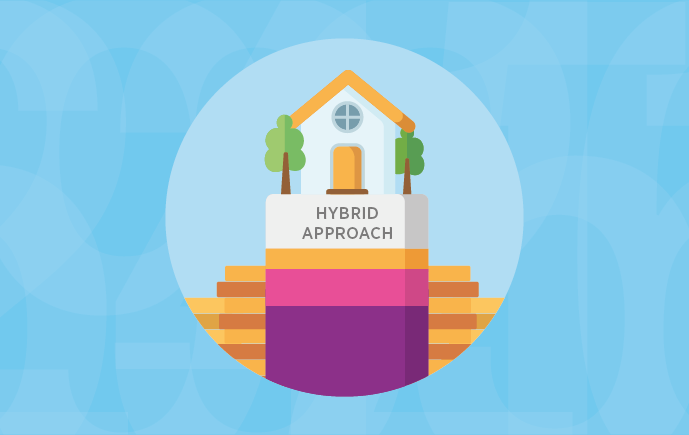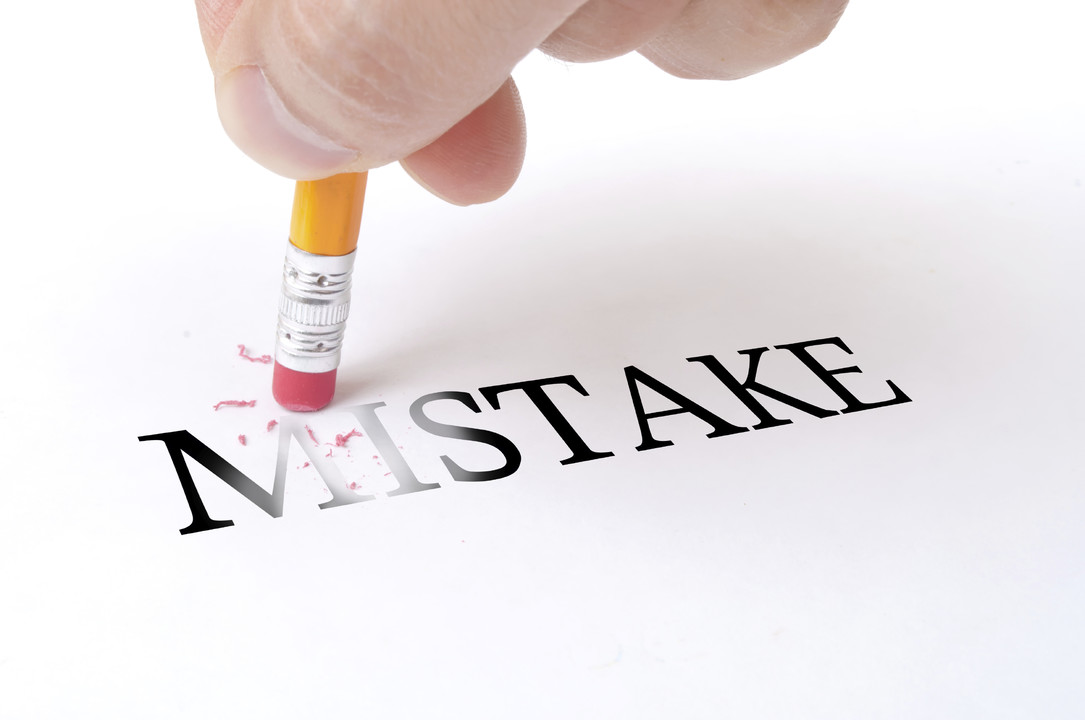Should You Start a Personal or Niche Blog in 2026? My Take

The honest truth about choosing your blogging path – from someone who face-planted trying both
Should you start a personal or niche blog?
Man, I wish someone had given me a straight answer to this question years ago instead of all that “follow your passion” BS that left me more confused than a cat in a dog park.
Let me tell you what actually happened when I tried both approaches.
Spoiler alert: I made some pretty spectacular mistakes along the way.
My Epic Personal Blog Disaster
Back in 2021, I launched what I thought was going to be my ticket to blogging fame.
I called it “Mia’s Random Thoughts” (cringe level: maximum).
I wrote about everything from my morning coffee rituals to AI tools to that weird dream I had about talking vegetables.
The first month? I felt like a blogging genius. I was covering travel tips on Monday, productivity hacks on Wednesday, and random life musings on Friday.
Freedom! Creativity! Pure artistic expression!
By month three, I was getting about 12 visitors a day. And half of those were probably my mom checking if I was still alive.
Here’s what I learned the painful way: Google doesn’t know what the hell to do with a blog that jumps from “Best Coffee Shops in Portland” to “Why AI Will Replace Your Cat” in the same week.
My content was all over the place, and so was my nonexistent traffic.
The algorithm gods were not pleased.
My Niche Blog Experiment That Worked

After licking my wounds for about two months (and eating way too much ice cream), I decided to go full niche. I shut down “Mia’s Random Thoughts” and started Blog Recode, focusing specifically on blogging and AI content creation.
The difference was like night and day.
Within six months, I went from those sad 12 daily visitors to over 800. My posts started ranking on Google’s first page. I actually had people subscribing to my newsletter without me begging them.
But here’s the thing nobody tells you about niche blogging – it can feel restrictive as hell sometimes.
There are days when I want to write about my latest Netflix obsession or share photos of my weekend hiking adventures, but I can’t because it doesn’t fit my brand.
It’s like being in a really successful relationship with someone who’s perfect on paper but doesn’t let you be your weird, random self.
You feel me?
The Data Behind the Drama

Let me hit you with some real numbers from my experience:
Personal Blog Stats (6 months):
- Average monthly visitors: 360
- Email subscribers: 23
- Revenue: $24 (from one affiliate link)
- Posts that ranked: 2 out of 47
Niche Blog Stats (6 months):
- Average monthly visitors: 15,200
- Email subscribers: 1,847
- Revenue: $3,400
- Posts that ranked: 34 out of 60
The numbers don’t lie, but they also don’t tell the whole story.
What Google Really Wants (And Why It Matters)
After diving deep into SEO analytics and using tools like Mangools and Semrush, I discovered something that changed my entire perspective.
Google’s algorithm is basically a really picky librarian who wants to put your content in the right section.
When you write about everything, Google can’t figure out where you belong. It’s like trying to file a book that’s part cookbook, part romance novel, and part car repair manual.
Where does that even go?
Niche blogs give Google clear signals about your expertise and authority. When someone searches for “AI content creation tools,” Google is way more likely to show my post from Blog Recode than it would have from “Mia’s Random Thoughts.”
But here’s the plot twist – personal blogs can work if you approach them strategically.
Secret to Finding Your Personal Brand Nich
About eight months into my niche blogging journey, I discovered something interesting. Some of the most successful “personal” blogs aren’t random at all.
They’re personal brands built around a specific angle or expertise area.
Take someone like Tim Ferriss. His blog feels personal, but everything ties back to optimization, productivity, and life hacking. Or Marie Forleo – super personal voice, but it’s all business and life advice for entrepreneurs.
The magic happens when you combine personal storytelling with focused expertise.
My Current Hybrid Approach (And Why It’s Working)

These days, I’ve found a middle ground that doesn’t make me want to pull my hair out.
Blog Recode is still my main niche site, but I’ve started incorporating more personal elements that tie back to my core topic.
Instead of writing “My Weekend Coffee Shop Adventure,” I write “How I Use AI Tools to Find the Perfect Coffee Shop for Remote Work.” Same personal experience, but it serves my niche audience.
This approach has actually boosted my engagement. People connect with the personal stories, but they stay for the valuable, focused content.
Honest Truth About Making Your Choice
Here’s what I wish someone had told me at the beginning:
Choose a personal blog if:
- You’re building a personal brand around yourself
- You have a clear angle or perspective that ties everything together
- You’re willing to be patient with slower growth
- You prioritize creative freedom over quick monetization
Choose a niche blog if:
- You want faster SEO results and traffic growth
- You have deep knowledge or passion in a specific area
- You’re focused on monetization and building authority
- You can handle some creative constraints
Choose a hybrid approach if:
- You want the best of both worlds (like me)
- You can tie personal stories to your niche topic
- You’re building a personal brand within a specific industry
Tools That Help With This Decision
I’ve tested a bunch of tools to help figure out content strategy, and here are the ones that actually moved the needle:
For keyword research: Ubersuggest and AnswerThePublic help you see what people are actually searching for in your potential niche.
For competition analysis: Mangools or SEMrush shows you what’s already ranking and how hard it’ll be to compete.
For content planning: I use Notion to map out content calendars and see if I have enough ideas to sustain a niche long-term.
The AI tool that’s been a game-changer? ChatGPT for brainstorming content angles that blend personal experience with niche value. It’s helped me find ways to make my personal stories serve my audience’s needs.
Mistakes That’ll Kill Your Blog (I Made Them All)

Let me save you some pain by sharing my biggest fails:
Mistake #1: Thinking “passion” alone is enough. I was passionate about everything, which meant I was expert at nothing.
Mistake #2: Not researching if people actually search for my topics. Turns out, “philosophical thoughts about Tuesday mornings” isn’t a high-volume keyword. Who knew?
Mistake #3: Switching between approaches too quickly. I gave my personal blog three months before panicking. Most blogs need at least six months to gain traction.
Mistake #4: Ignoring my audience. I wrote what I wanted to write instead of what people needed to read.
What I’d Do Differently (Your Roadmap)

If I could start over tomorrow, here’s exactly what I’d do:
- Research first, write second. I’d spend a week using keyword tools to see what people are actually searching for.
- Test the hybrid approach from day one. Start with a loose niche but inject personal stories that add value.
- Set realistic expectations. Growth takes time, whether you go personal or niche.
- Focus on helping people solve problems. Even personal stories should leave readers with something useful.
- Use AI tools to bridge the gap. Let AI help you find the sweet spot between personal and valuable.
Bottom Line: It’s Not Really About the Choice
Here’s what I’ve learned after years of blogging, multiple pivots, and enough caffeine to power a small city: the personal or niche blog decision isn’t what makes or breaks your blog.
What matters is consistency, value, and actually understanding your audience.
I’ve seen personal blogs crush it because the author had a unique perspective on a specific topic. I’ve also seen niche blogs fail because they were boring AF and didn’t connect with real people.
The secret isn’t choosing the “right” type of blog. It’s choosing the approach that lets you create valuable content consistently without burning out.
For me, that turned out to be niche blogging with personal storytelling. For you, it might be something completely different.
And you know what? That’s totally okay. The best blog is the one you’ll actually stick with long enough to see results.
FAQs
How long should I wait before deciding if my blog approach is working?
Give it at least six months of consistent posting. I know that sounds like forever, but SEO takes time. I’ve seen blogs explode in month 8 after months of crickets.
Most people quit right before things start working.
Can I change from personal to niche later (or vice versa)?
Absolutely!
I did it, and while it wasn’t seamless, it’s totally doable. You might lose some traffic during the transition, but if your new approach is better aligned with your goals, it’s worth it.
Just make sure you redirect old URLs properly.
What if I have multiple passions and can’t pick just one niche?
Look for the connecting thread. I love AI, productivity, and wine, but they all tie into my work as a content creator.
Sometimes the niche is broader than you think – like “tools and strategies for creative professionals.”
Do personal blogs make less money than niche blogs?
Not necessarily, but they often take longer to monetize. Niche blogs can target specific affiliate products and services more easily.
Personal blogs might make money through courses, coaching, or brand partnerships that align with the creator’s personal brand.
Should I use my real name for a personal blog?
If you’re building a personal brand, yes. People connect with real humans. But if you’re in a conservative industry or have privacy concerns, a pseudonym works too.
Just be consistent with whatever you choose.
How do I know if I have enough content ideas for a niche blog?
Spend a week brainstorming and researching. If you can come up with 50+ topic ideas that people actually search for, you’re probably good.
If you’re struggling after 20, your niche might be too narrow or you need to broaden your approach.
What’s the biggest mistake new bloggers make when choosing their focus?
They think they need to be everything to everyone. Whether you go personal or niche, you need to solve specific problems for specific people. A blog about “everything for everyone” is a blog about nothing for no one.





